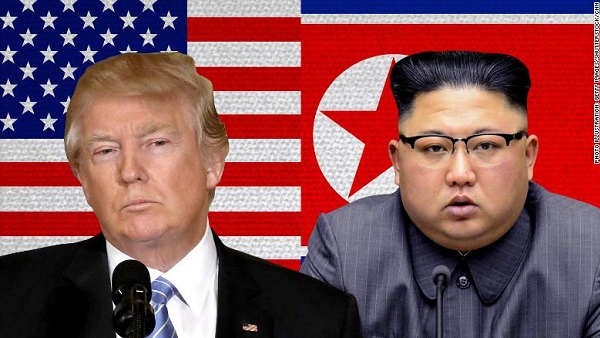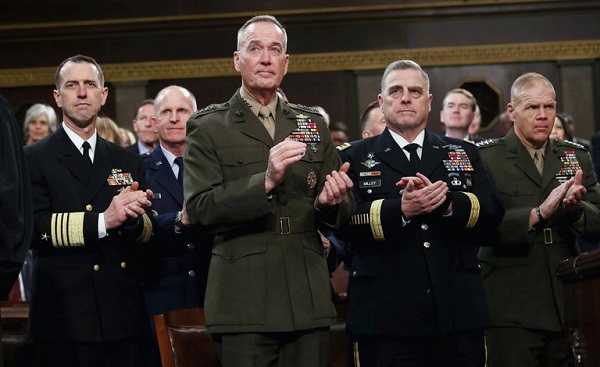Role-playing elections, Rebekah Mercer, Cambridge Analytica, &c
Wednesday, June 27th, 2018[ by Charles Cameron — the “politics as game” metaphor comes in towards the end of this post — I think it’s a rich one ]
.
Totally irrelevant mega-foosball game was the best illustration, understandably, Gizmodo could come up with for a sophisticated role-player with strong political implications. Photo: Hector Viva (Getty Images)
**
This is a particularly juicy topic — Bryan Alexander pointed me to it. It seems there are a couple of RPGs, and I don’t mean rocket propelled grenades, in which role-players can play out elections — 2016 and 2020 — with an added emphasis on “an influential technology accelerator.”
First, then, Jane Mayer‘s New Yorker piece, which lit things up:
A Parlor Game at Rebekah Mercer’s Has No Get Out of Jail Free Card
Members of the right-wing family that helped put Trump in the White House can relive the campaign in an elaborate dinner-party game.
I mean, how cool is that? Jane Mayer, whose book The Dark Side: The Inside Story of How the War on Terror Turned into a War on American Ideals, prompted reporter Joby Warrick to write that a CIA analyst had warned the Bush administration that “up to a third of the detainees at Guantanamo Bay may have been imprisoned by mistake,” while NYT reporter Scott Shane noted:
Mayer’s book disclosed that International Committee of the Red Cross officials had concluded in a secret report in 2007, that “the Central Intelligence Agency’s interrogation methods for high-level Qaeda prisoners constituted torture and could make the Bush administration officials who approved them guilty of war crimes.”
**
Okay, Jane Mayer is someone I geerally read with respect — and in her recent piece she delivered her goods on the megadonors and algorithms that plausibly gave Trump the 2016 election:
Robert Mercer, the New York hedge-fund magnate whose huge donations to pro-Trump groups in 2016 have been credited with putting Donald Trump in the White House, has kept a low profile since the election. But his daughter Rebekah, who runs the family’s foundation, now has a way to relive the thrill of the campaign with friends around her dinner table.
This, then, is entertainment, and good, clean fun — unless you happen to have a bias against hedge fund managers and the like.
In March, on a ski vacation at a rented house near Vail, Colorado, she brought a batch of copies of the “Rules of Play” for an elaborate parlor game called the Machine Learning President. Essentially, it is a race to the Oval Office in three fifteen-minute rounds. It’s a role-playing game, more like Assassin than like Monopoly, although players of this game do start out with an allotment of “cash” to spend on pushing their agendas, which can include “algorithmic policing” and “mass deportation.”
“Tonight, the name of the game is power,” reads the first page of the “Rules of Play.” Each player, it goes on, “will assume a new political identity.” Instead of becoming Colonel Mustard or Mrs. Peacock, as in the board game Clue, each player takes on the role of a political candidate or a “faction,” in the game’s parlance. Among the possible roles are Mike Pence, Elizabeth Warren, Black Lives Matter, Russia, Y Combinator, Tom Steyer, Wall Street, Evangelicals, the Koch Network, and Robert Mercer himself.
Colonel Mustard and Mrs. Peacock? or Rich Uncle PennyBags, the moustached logo from Monopoly? From a games perspective, Mayer’s piece is a rich trove — and of course, there’s more I could quote..
**
Now turn to Buzzfeed for a corrective, which is where Bryan landed me:
Rebekah Mercer Says She Isn’t Reliving The 2016 Election Through A Role-Playing Game
“I know nothing about that game, nothing about who created it or who plays it.”
And again, there are details aplenty:
Republican megadonor Rebekah Mercer strongly disputed on Monday a New Yorker report that she “has a way to relive the thrill” of the 2016 presidential campaign via a role-playing game that includes her father as a character.
The story, by journalist Jane Mayer, found that Mercer brought with her on a recent Colorado ski vacation the rules for “Machine Learning President,” a party game in which players assume the roles of politicians, interest groups, an influential technology accelerator, and billionaire donors involved in a hypothetical presidential election. Among the game’s characters is Robert Mercer, Rebekah’s father, a hedge fund billionaire whose donations to the Trump campaign and stakes in Breitbart News and Cambridge Analytica have brought him intense public scrutiny. Other characters include Elizabeth Warren and Mike Pence as presidential hopefuls.
In the three round game — Super Tuesday, the Primary, and the General Election — players split into factions that include the candidates themselves, Wall Street, and Russia. According to a Gizmodo story, the goal of the game “is to get players thinking about ways tech and money could be manipulated to influence the 2020 election.”
“I know nothing about that game, nothing about who created it or who plays it and, unlike Ms. Mayer, I didn’t even really read those pages and I shredded them when I got home,” Mercer wrote in an email to BuzzFeed News. Mercer did not explain why she shredded the game rules.
Ooh, shredded the game rules. And then there’s a nanny, who may have leaked the story.
**
Fast forward (by which I mean, click through) to Gizmodo‘s piece:‘Machine Learning President’ Designers Have No Idea How the Mercers Got Their Game
When a group of about 40 players first tested out a live game called the Machine Learning President at a private event in San Francisco this February, they were unaware that the game would end up memorialized in the pages of The New Yorker.
But during a ski vacation in March, the Republican mega-donor Rebekah Mercer gathered her friends together to play several rounds of the game, which pits special interest groups, political candidates, and activist organizations against each other in a simulated presidential election, aided by cash and artificial intelligence. A lawyer for Mercer told The New Yorker that she owned a copy of the Machine Learning President but had not created it and that it did not reflect her family’s views.
Indeed, the game was in fact designed by an outfit that was less than friendly to the Mercer’s position:
It’s not hard to draw comparisons between the rules of the game, with its reliance on big cash and tech capabilities, and the actions of the Mercer-backed Cambridge Analytica during the 2016 U.S. presidential election. But, as Mercer’s lawyer stated, she had nothing to do with creating the game -— in fact, it was conceptualized by one of her vocal critics.
**
Here we go:
Brett Horvath and Berit Anderson are the co-founders of Scout AI and the creators of the Machine Learning President. In 2017, the pair published a scathing critique of Cambridge Analytica, the now-shuttered political consultancy that misused the data of tens of millions of Facebook users and sat at the center of the social network’s largest scandal in years. “By leveraging automated emotional manipulation alongside swarms of bots, Facebook dark posts, A/B testing, and fake news networks, a company called Cambridge Analytica has activated an invisible machine that preys on the personalities of individual voters to create large shifts in public opinion,” the duo wrote.
Wrote, in fact, in a piece titled The Rise of the Weaponized AI Propaganda Machine — and here we’re getting into more serious, “Alert, ICYMI” waters — subtitled:
There’s a new automated propaganda machine driving global politics. How it works and what it will mean for the future of democracy.
The 20-page piece begins:
“This is a propaganda machine. It’s targeting people individually to recruit them to an idea. It’s a level of social engineering that I’ve never seen before. They’re capturing people and then keeping them on an emotional leash and never letting them go,” said professor Jonathan Albright.
Albright, an assistant professor and data scientist at Elon University, started digging into fake news sites after Donald Trump was elected president. Through extensive research and interviews with Albright and other key experts in the field, including Samuel Woolley, Head of Research at Oxford University’s Computational Propaganda Project, and Martin Moore, Director of the Centre for the Study of Media, Communication and Power at Kings College, it became clear to Scout that this phenomenon was about much more than just a few fake news stories. It was a piece of a much bigger and darker puzzle?—?a Weaponized AI Propaganda Machine being used to manipulate our opinions and behavior to advance specific political agendas.
**
So Reberkah Mercer was sent a copy of a game whose progenitors were seriously opposed to Cambridge Analytica style “weaponization” of US presidential politics, and had created a game to get others thinking along similar lines.. she then played it, or didn’t.. then, either way, shredded it.
Back to Gizmodo:
That invisible machine—and the lack of preparedness for it in the 2016 election—provided inspiration for the Machine Learning President. The goal of the game is to get players thinking about ways tech and money could be manipulated to influence the 2020 election. (It also inspired Scout AI to spin out another group, Guardians AI, that’s focused on protecting pro-democracy groups from information warfare and cyber attacks.)
“This is an experience we created to help pro-democracy groups and strengthen democracy against some of the ways technology might interfere with fair elections,” explained Randy Lubin, one of the game’s designers and the leader of a design studio called Diegetic Games. “We knew that some sort of game or simulation or exercise was a really great way to understand the incentives and systems at play.”
I think there’s plenty of eccentric and wonky games and wargames stuff in here, and would have posted this anyway — but if I need a rationale within my own “system”, I’ve been collecting game metaphors as you know, and this one has the game metaphor in those last words:
We knew that some sort of game or simulation or exercise was a really great way to understand the incentives and systems at play.
Yes, politics itself can be viewed as a game, modeled in a game, learned from in a game, wargamed — or simply “played” in a game for dinner party entertainment. The possibility of red-teaming 2020 is where this gets cutting-edge interesting.
Boom!











